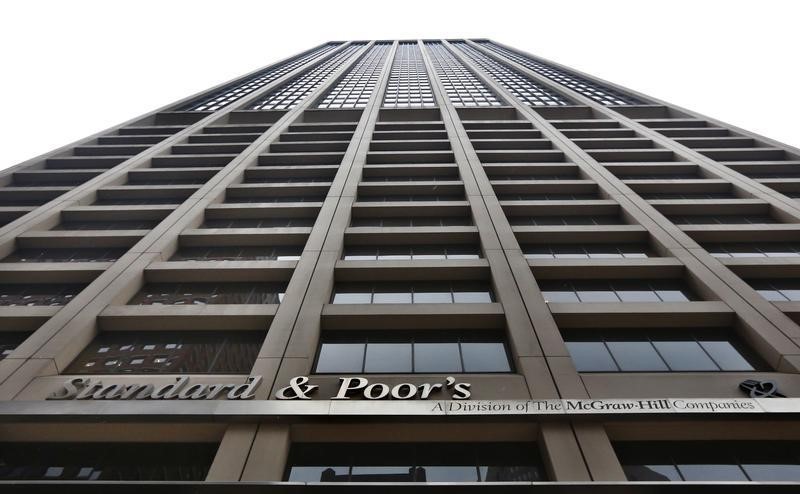By Marc Jones
LONDON (Reuters) - Standard and Poor's said it would not expect a big increase in sovereign defaults if the International Monetary Fund adopted a plan to force states to restructure their debts before receiving IMF aid.
The international lender proposed the change in June, in part as a result of its experience in Greece, where it agreed to bail out the euro zone country without imposing losses on private creditors, before having to do a U-turn.
Greece ended up being one of the biggest debt write-offs in history but Moritz Kraemer, S&P's chief ratings officer, said the proposed IMF move would be unlikely to make bond investors more wary about whose debt they bought.
"The proposal aims to reduce the economic and financial cost of resolving a sovereign debt crisis," Kraemer said in a report.
"However... we consider it premature to conclude that sovereign default risk -- i.e. reprofiling or restructuring --would noticeably increase should the proposals become IMF policy," he added.
One potential test case for the new approach could be Ukraine, which only earlier this year was given a third aid package despite its two previous failures.
Although it meets the reprofiling conditions of IMF borrowing in excess of normal limits as well as loss of bond market access, it may not be able to get a 'super majority' of creditors to agree to an exchange, particularly as Russia owns a large chunk of Ukraine's bonds, S&P said.
A restructuring -- getting bond holders to give a government longer to pay rather than getting them to write off money -- would only be demanded under the new plan if it was unclear whether the debt were "unsustainable".
Bondholders would also have to agree to it and the country involved would have to be locked out of normal borrowing markets.
Kraemer said the complex equations and varied assumptions on which such decisions were based meant the approach, which is still under review by the IMF, would only be used sparingly.
"When there is a high level 'uncertainty' about debt sustainability, in other words there is a reasonable chance that the debt may be sustainable after all, the IMF could be understandably cautious in calling for reprofiling, lest it stigmatizes a member state," Kraemer added.

"We therefore believe that the option to request a reprofiling will be used reluctantly rather than aggressively."
(Reporting by Marc Jones; Editing by Jon Boyle)